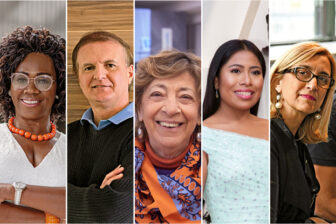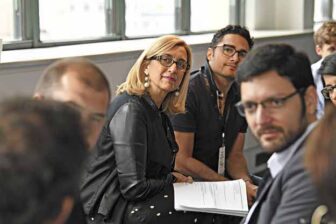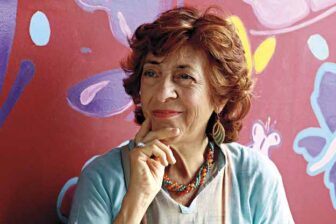This article is adapted from AQ’s special report on closing the gender gap | Leer en español | Click here to see the rest of our Top 5
When a bill to legalize abortion was rejected by Argentina’s Senate in 2018, the margin was just four votes. Though disappointing for reproductive rights activists, the historic vote reflected decades of education and advocacy, much of it led by Dr. Mabel Bianco and the Foundation for Studies and Research on Women (FEIM), which she founded in 1989.
“All my life, I have been working to change the law on abortion,” Bianco, 79, told AQ. The abortion fight, however, is just the tip of the iceberg of Bianco’s four decades in activism and scholarship. Named by the BBC as one of the 100 most influential women in the world in 2019, the epidemiologist has been a pioneer for gender equity in health ever since she was one of just three women in her medical internship in the 1960s.
Bringing visibility to issues like violence against women, birth control and HIV/AIDS, Bianco has led task forces and studies, including pioneering studies on breast cancer and maternal mortality. She has held multiple positions at Argentina’s health ministry and has been a consultant for the World Health Organization, the UN and the Pan-American Health Organization, among others. Meanwhile, FEIM educates young people on public health and lobbies legislators.
Her policy proposals, however, have often found strong adversaries, including the Catholic Church and a legislature that until recently was dominated by men. The passage of a gender quota in 1991 saw more women elected to Argentina’s Congress, and Bianco’s advocacy saw new results: the approval of a 2002 law that promised universal access to contraceptives and a 2015 law promising universal HIV anti-retroviral treatment.
The COVID-19 pandemic has reinforced the urgency of equitable public health care, but it has also shifted priorities. It could be 2021 before Congress debates abortion again. But Bianco has no plans of backing down from the fight, nor letting the pandemic slow FEIM’s education initiatives.
“We lost two years ago,” Bianco said. “I’m waiting and I’m fighting.”
—
Hopkins is an editorial intern at AQ








